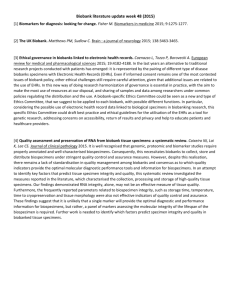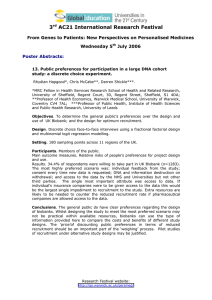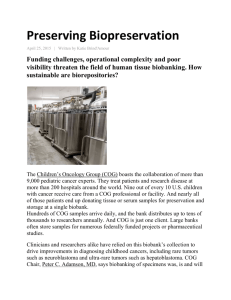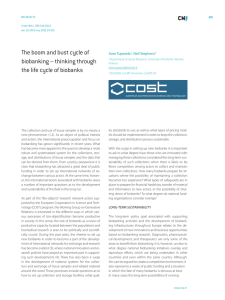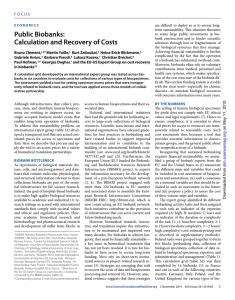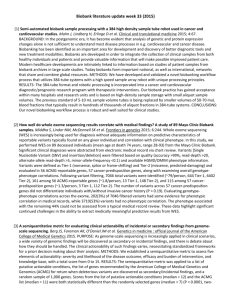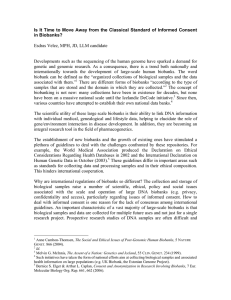RD-Connect: An opportunity for enhancing ... biobanks worldwide
advertisement
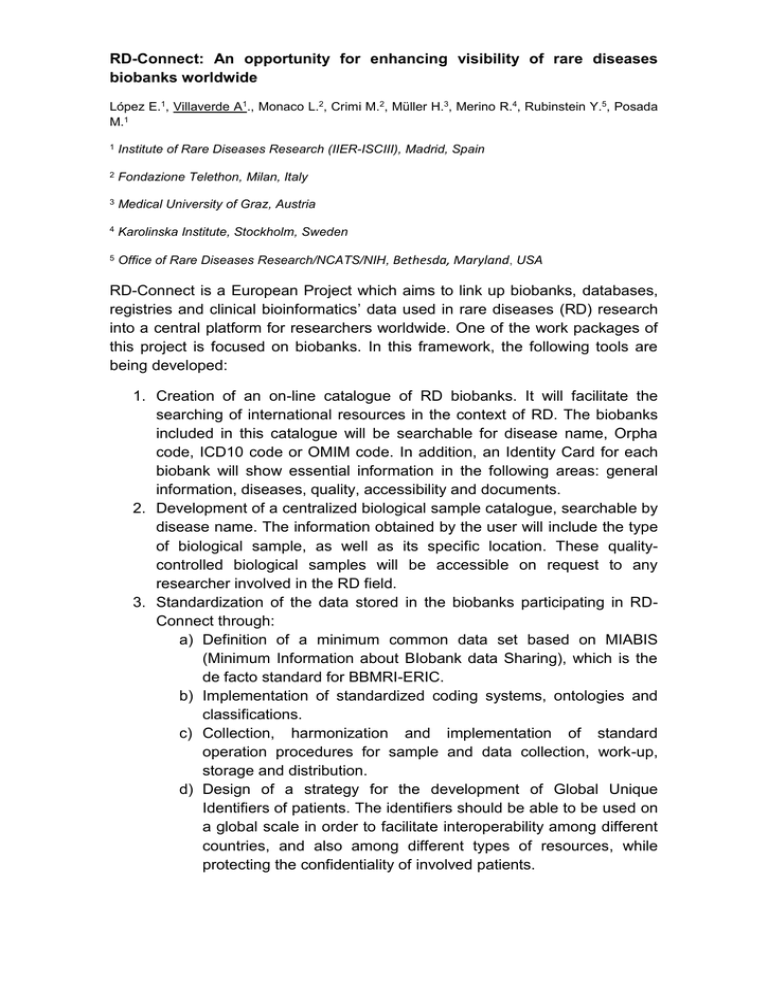
RD-Connect: An opportunity for enhancing visibility of rare diseases biobanks worldwide López E.1, Villaverde A1., Monaco L.2, Crimi M.2, Müller H.3, Merino R.4, Rubinstein Y.5, Posada M.1 1 Institute of Rare Diseases Research (IIER-ISCIII), Madrid, Spain 2 Fondazione Telethon, Milan, Italy 3 Medical University of Graz, Austria 4 Karolinska Institute, Stockholm, Sweden 5 Office of Rare Diseases Research/NCATS/NIH, Bethesda, Maryland, USA RD-Connect is a European Project which aims to link up biobanks, databases, registries and clinical bioinformatics’ data used in rare diseases (RD) research into a central platform for researchers worldwide. One of the work packages of this project is focused on biobanks. In this framework, the following tools are being developed: 1. Creation of an on-line catalogue of RD biobanks. It will facilitate the searching of international resources in the context of RD. The biobanks included in this catalogue will be searchable for disease name, Orpha code, ICD10 code or OMIM code. In addition, an Identity Card for each biobank will show essential information in the following areas: general information, diseases, quality, accessibility and documents. 2. Development of a centralized biological sample catalogue, searchable by disease name. The information obtained by the user will include the type of biological sample, as well as its specific location. These qualitycontrolled biological samples will be accessible on request to any researcher involved in the RD field. 3. Standardization of the data stored in the biobanks participating in RDConnect through: a) Definition of a minimum common data set based on MIABIS (Minimum Information about BIobank data Sharing), which is the de facto standard for BBMRI-ERIC. b) Implementation of standardized coding systems, ontologies and classifications. c) Collection, harmonization and implementation of standard operation procedures for sample and data collection, work-up, storage and distribution. d) Design of a strategy for the development of Global Unique Identifiers of patients. The identifiers should be able to be used on a global scale in order to facilitate interoperability among different countries, and also among different types of resources, while protecting the confidentiality of involved patients. The participation of biobanks in the RD-Connect platform will imply the adoption of a series of minimum requirements, previously defined by a panel of experts.
